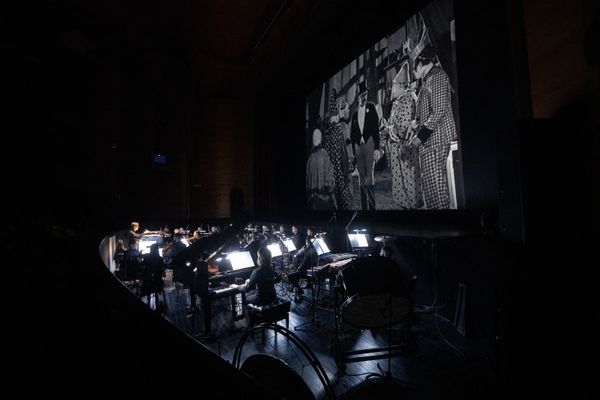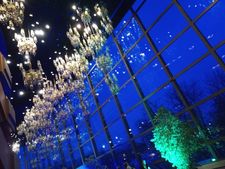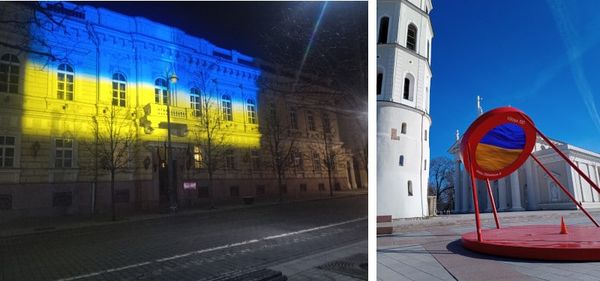 |
| Charlie Chaplin's The Circus, with live orchestra at Vilnius International Film Festival Photo: Tautvydas Stukas/courtesy Vilnius Film Festival |
The festival - currently in the middle of its industry days as well as film screenings - is bustling with visitors from Europe and further afield, while the town is keen to emphasise it is very much open for business and tourism.
There's certainly plenty of choice when it comes to the films and venues. Beyond the multiplex Vingis cinema - the sort of cinema you would find in most cities and at most festivals - there's swish art house cinema Pasaka, where I caught Boiling Point, and which has a relaxed but upmarket feel. Just as well, perhaps, given how nerve-jangling the one-take film starring Stephen Graham as a stressed-out chef is.
Several screenings are also being held at the city's impressive National Opera and Ballet Theatre. Converting these sorts of non-purpose built for movies spaces to cinema venues isn't always a great success - the sound in Edinburgh's Festival Theatre when it is used for EIFF screenings, for example, is pretty grotty - but they've done a great job in Vilnius. The screening of Berlin Golden Bear winner Alcarrás I went to was well-attended by people of all ages, buzzing, not least from the small but sinful cups of the theatre's "legendary" hot chocolate and pre-show desserts that had the glorious look of old-school knickerbocker glories. Afterwards it was quite a surprise to step from the warmth of Spanish family drama outside to find fat flakes of snow were falling.
 |
| Inside the National Opera and Ballet Theatre Photo: Amber Wilkinson |
The city itself will celebrate its 700th anniversary next year, with a modern art clock near the Catholic Cathedral bell tower counting down the days - and, like so much of the town, also displaying those distinctive yellow and blue colours of Ukraine.
Chief of my personal discoveries at this year's festival were Alcarrás, which builds on Carla Simón's touch for portraying children and families that she already showed in Summer 1993, and the Lithuanian Feature Film About Life, which cleverly articulates many of the absurdities and incidental moments that surround the rituals of death while still packing an emotional punch. Debut documentary Mirror also marks an impressive debut from Indian co-directors Siddhant Sarin and Debankon Singh Solanky. We'll be bringing you a full interview with Sarin soon about his film that follows a group of acid attack survivors over five years and which achieves a strong level of trust with the women, so that they open up about their experience and hopes.
The industry event, Meeting Point Vilnius, is, like the rest of the festival, boycotting Russian films this year and will dedicate tomorrow to Ukraine with three panels on political, institutional and film industry levels, to address not only the immediate effects of the war, but to focus on how culture specifically can support the Ukrainian cause. The list of panelists includes the Lithuanian Minister of Culture, Simonas Kairys, Lucia Recalde as the Head of Unit “Audiovisual Industry and media support programmes” at the European Commission as well as representatives of the Ukrainian film industry.
Among the events is special case study on Sundance- and Berlinale-award winner Klondike, by Ukrainian filmmaker Maryna Er Gorbach, who was a jury member for the pitching session. The 20 projects selected for the 2022 "Coming Soon" pitching session hail from 18 countries and ten of them are being directed by female directors.
 |
| Just two examples of Lithuanian solidarity with Ukraine. On the right is the clock counting down to the 700th anniversary of Vilnius Photo: Amber Wilkinson |





















